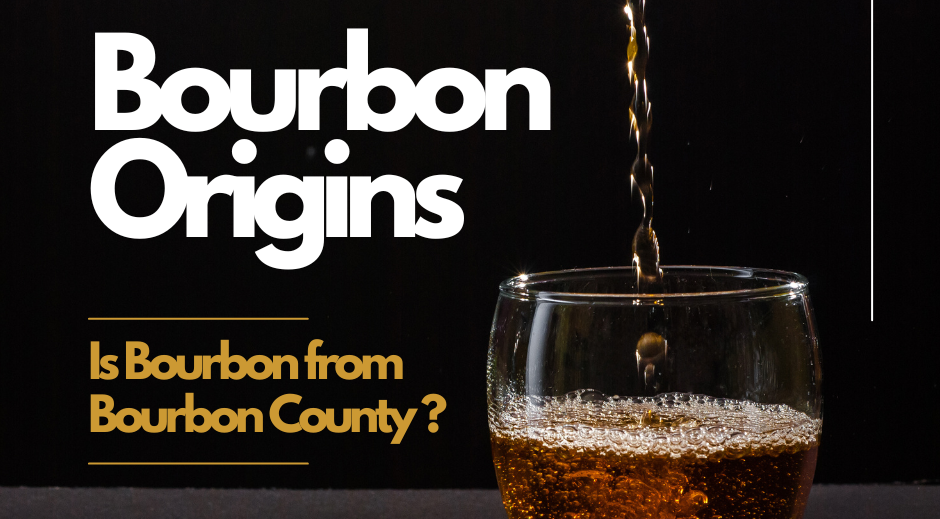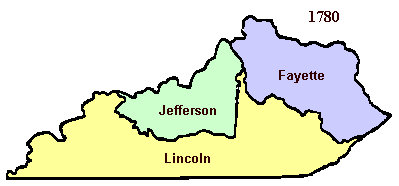Did you know that Bourbon County was originally part of Virginia? Bourbon County, Kentucky may not be the namesake for our favorite American liquor…So if not Bourbon County, KY, where did the name bourbon come from? Let’s look at some history.
Kentucky was formed as a county of Virginia between 1776 and 1777 after the 13 colonies established their independence. It was first called Fincastle County, VA before the name was changed to Kentucky. In 1780, Kentucky County was divided into Fayette, Lincoln and Jefferson Counties.
In 1786, Bourbon County was formed by the division of Fayette County. When Bourbon County was formed, there were only 7 counties within Kentucky. In 1789, Mason County’s formation cut Bourbon County almost in half. Then in 1792, when Kentucky became a state, it was divided again by Clark and Harrison Counties. The very large segment of Kentucky that was Bourbon county was reduced to half its area again in 1800 with the creation of Nicholas County. What began as 3 counties in Kentucky has become 120 counties today. Before the term bourbon even originated, the massive Bourbon County was reduced to a very small county in the northern central portion of the state.
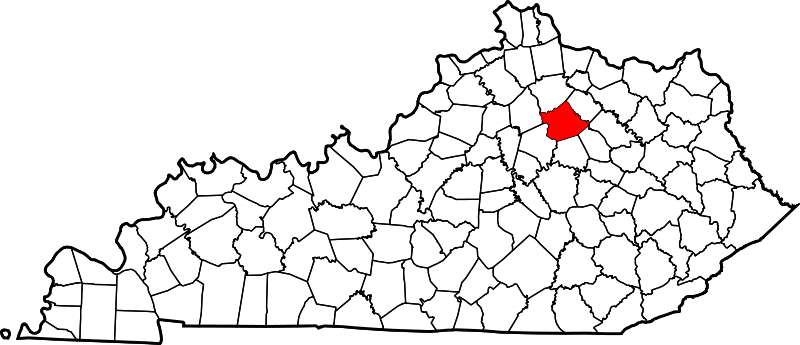
The term “bourbon” for whiskey wasn’t used commonly until 1870. There aren’t documented uses for the name at all until after 1820. I tend to agree with Michael Veach’s assertion that the name “bourbon” came from somewhere other than Bourbon County in Kentucky. Honestly, it makes less sense to associate the origins of “bourbon” with Kentucky’s Bourbon County as you learn a bit more about the history of the whiskey and the history of the county itself. The word “bourbon” had many associations to other products and places at the time.
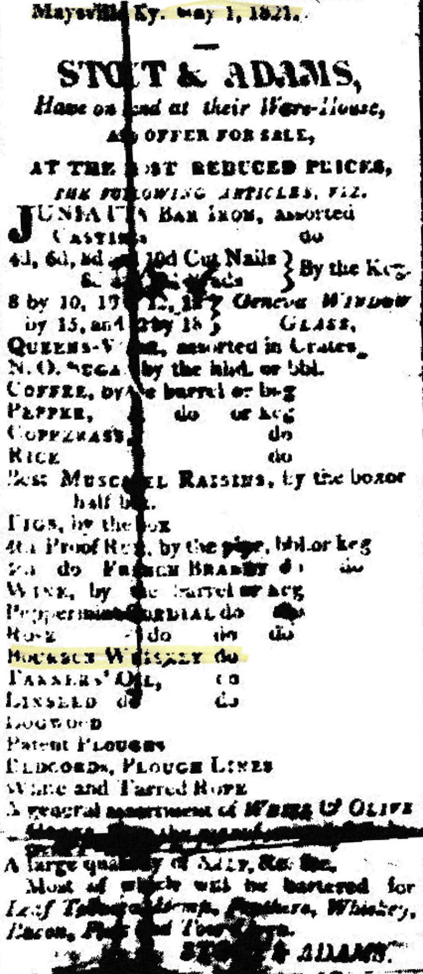
While Mr. Veach connects the word “bourbon” with Bourbon Street in New Orleans, I tend to think it was broader than just that single connection. Producers of whiskey were selling to a largely French community in New Orleans who were eager to buy an inexpensive product. Most of the south supported the French and was constantly reading about what was happening in Europe with the transition from Napoleon back to the Bourbons. It makes sense that people would be drawn to a product with a French connection.
The early 1800s brought a lot of attention to the Bourbons due to the Bourbon Restoration that was underway in France. Newspaper articles splashed the news of the political changes taking place abroad. “Bourbon” was becoming a recognizable word across the young American nation. There was a famous racing horse named Bourbon and even a popular type of snuff tobacco called Bourbon. Pro-French Jeffersonians would certainly have welcomed a whiskey called “bourbon.” The first governor of Kentucky, who was pro-French, was largely responsible for making a deal with the Spanish to open up reliable trade traffic on the Mississippi River all the way down to New Orleans. To add to all this “bourbon” discussion, the Georgia Territory, which extended all the way to the Mississippi River until 1802, had been in dispute as part of the Yazoo-Georgia Land Controversy.
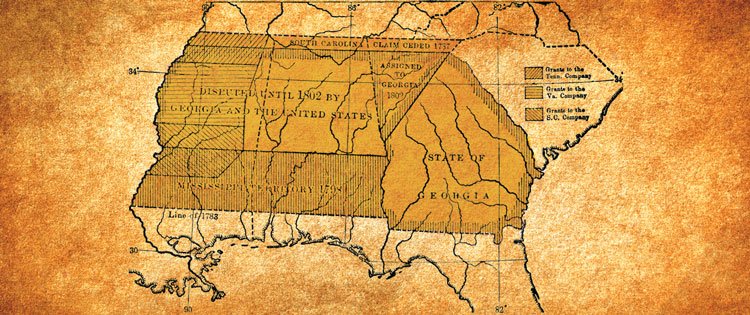
And guess what the name of the Georgia “county” bordering the Mississippi was named in 1785? That’s right- Bourbon County! Of course, THIS Bourbon County, though short lived, would have been part of Tennessee and Alabama today. The name of the county didn’t stick, and the borders of Georgia were pushed east behind the Chattahoochee River, but there’s no doubt that the name stuck in people’s minds. It is believed that Bourbon County, Georgia was named after the Bourbons of France. Go figure.
From what I have seen, there is no reason to believe that bourbon didn’t evolve the same way any other name has- from a consumer connection to quality and regional recognition. Bourbon may not have been specifically from Bourbon County, Kentucky but all that mattered was what consumers associated it with. The name “bourbon” would conjure images of old corn whiskey from the south just as Old Monongahela rye would conjure images of old rye from western Pennsylvania. It is likely that Kentucky distillers, just as Pennsylvania distillers had before them, adopted a name for their whiskeys based on the success that the name was having with consumers. It may have started with a handful of men calling their whiskeys “bourbon,” but the trend grew. Bourbon became a universally recognized whiskey style over a half century of building a name for itself. This reality of brand and name recognition remains unchanged today.

There has been competition over the years to claim responsibility for the first distillery in Kentucky, or Bourbon County for that matter. Was it John Ritchie in Nelson County who shipped his whiskey to New Orleans? Was it Elijah Craig? Was it Jacob Spears in Bourbon County or Captain John Hamilton, who is said to have distilled in the region before Spears? There was an ad in the Kentucky Gazette on June 27, 1789 that advertised the sale of a 120 gallon copper still by a man named Daniel Stewart. How long had he used his still before selling it? It was Evan Williams in 1783 that was the first LICENSED commercial distiller in the state (Louisville). He was NOT the first licensed distiller in the United States, however. That honor goes to Laird’s Distillery in Scobeyville, New Jersey which received License No. 1 from the U.S. Department of the Treasury in 1780. I’m not sure that Evan Williams can make that claim to be be “the first in the state” either because Kentucky did not become a state until 1792…so there’s that. Does it really matter, though? Bourbon was a good name for whiskey in the early 1800s and it still is today!


